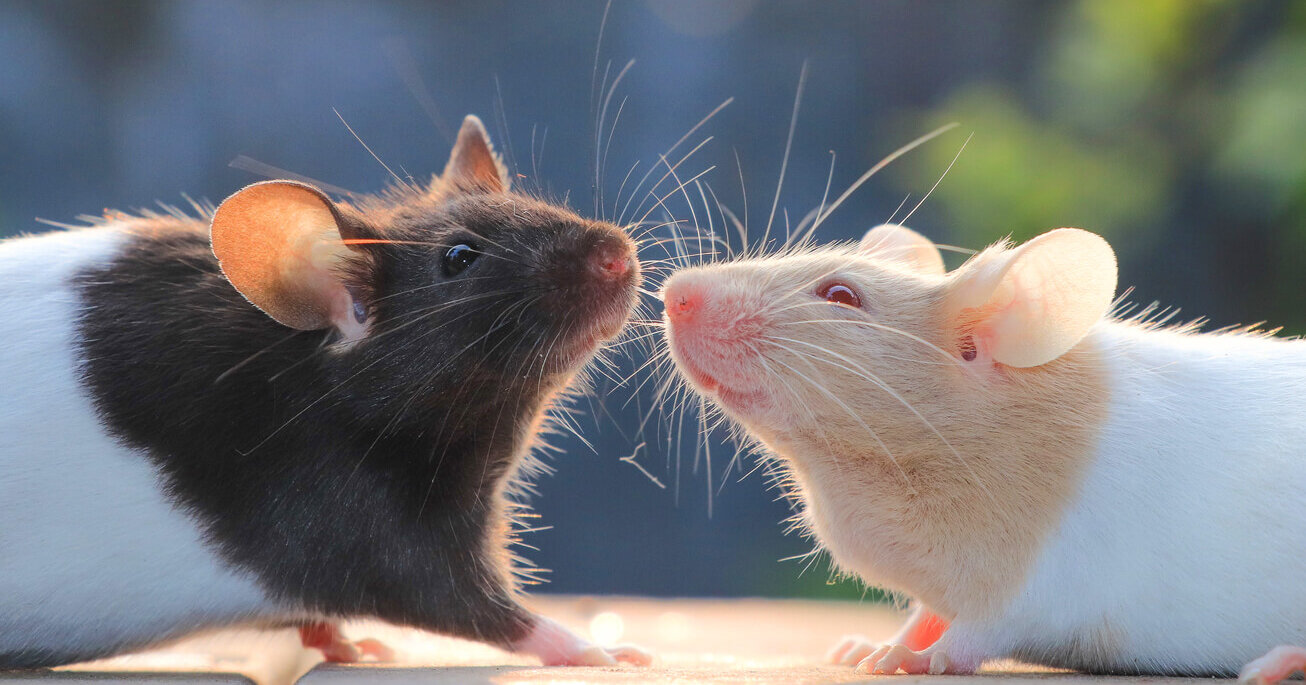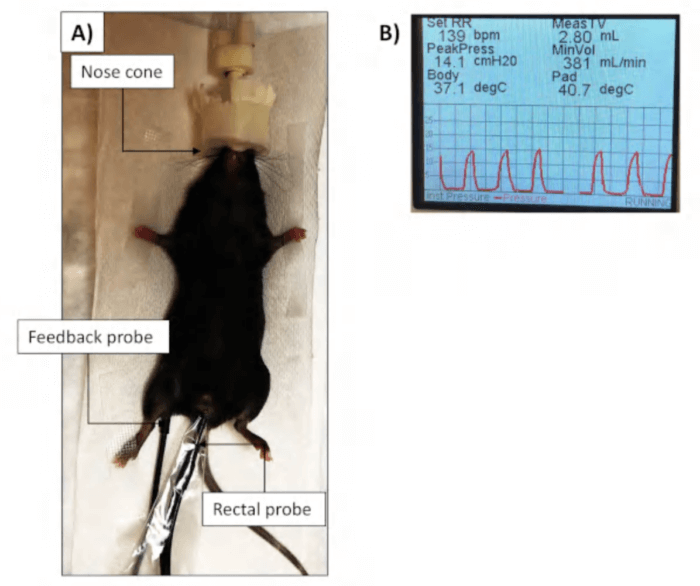Victory! PETA Sways Medical Charities to Ban Animal Tests
PETA has asked medical charities worldwide to ban all animal testing not explicitly required by law. Here are the charities dedicated to human-relevant, animal-free research.

Each year, medical charities around the world—including St. Jude Children’s Research Hospital, Susan G. Komen, March of Dimes, and the Muscular Dystrophy Association—funnel donations toward appallingly cruel and pointless experiments on animals.
In these tests, thousands of dogs, cats, monkeys, rabbits, mice, rats, guinea pigs, sheep, zebrafish, and other animals are forced to endure horrific procedures, including oxygen deprivation, asphyxiation, irradiation, intoxication, mutilation, decapitation, and injection with drugs and other chemicals. Here’s a small sampling of what has been done to these animals:
Experimenters took the blood pressure of 424 monkeys and killed and dissected them.
Experimenters cut open the chests of sheep, attached electrodes to their hearts, and induced heart failure by forcing the organs to beat at 220 beats per minute for seven days.
- Experimenters cut open rabbits’ chests, cut out their hearts, and then killed them.
Experimenters induced heart failure in dogs by forcing their hearts to beat at 200 beats per minute for six weeks before cutting out the organs and killing the animals.
Experimenters sewed the eyes of newborn kittens shut for a year, then killed them.
Experimenters injected rats with an acute toxin that caused a part of their hearts to fail, resulting in weight loss, lethargy, labored breathing, and lack of curiosity. After six weeks, the experimenters killed them by breaking their necks.
Experimenters performed physiological monitoring on guinea pigs by inserting needle electrodes and rectal thermometers, drawing blood, and taping gas monitors to their ears.
Experimenters cut two wounds into the backs of mice with scissors, glued and stitched silicone rings around them, and after 16 days killed the mice by asphyxiation and breaking their necks.

Figure 2 in Biventricular Assessment of Cardiac Function and Pressure-Volume Loops by Closed-Chest Catheterization in Mice, CC BY-NC-ND 3.0
Animal Experiments Fail to Help Patients

PETA’s groundbreaking Research Modernization Deal—our roadmap for moving away from cruel and useless animal testing in favor of more effective, non-animal methods—shows it’s already feasible to eliminate the use of animals immediately in specific disease research areas where they have proved to be poor surrogates for humans.
The statistics don’t lie—animal testing is an overwhelming failure when it comes to advancing human health. In preclinical studies, which are largely tests on animals, up to 89% of these experiments can’t be reproduced, even though reproducibility is a critical component of scientific research. Studies show that a staggering 90% of basic research, most of which involves animals, fails to lead to treatments for humans. The National Institutes of Health confirms that 95% of all new drugs that test safe and effective in animal tests fail or cause harm in human clinical trials. The failure rate of new drugs developed using animals in specific disease research areas exceeds 95%. For instance, 100% of HIV vaccines and drugs to treat strokes have failed, as have 99.6% of Alzheimer’s disease drugs and 96.6% of cancer drugs.
Superior, Humane Science

PETA scientists are on the vanguard of both kindness and leading-edge science. And our new global advocacy aimed at contacting numerous medical charities and swaying them to support superior, animal-free, human-relevant research is successfully bringing more of them into the fold.
Following discussions with PETA, the medical charities listed below have adopted compassionate new policies that prohibit the funding, conducting, and commissioning of experiments on animals that are not explicitly required by law, confirming they won’t voluntarily take part in animal tests. Medical charities marked with an asterisk (*) previously pursued animal testing but ended their support after talks with us.
Referring to this list, which is not exhaustive, can help ensure that your charity donations benefit humans without harming animals. If you want to support charities that you don’t see listed here, please contact them directly and ask if they prohibit the funding, conducting, and commissioning of animal tests, and let us know what they say. Be sure to let medical charities know that you won’t support them as long as they use animals in laboratory experiments.
Medical Charities That Don’t Test on Animals
Learn about organizations’ policies against animal testing or other relevant information by clicking the “+” signs below.

Public policy:
“GMHC’s National Center for HIV & Aging program is an internationally recognized authority and resource on HIV and aging. The center has conducted two landmark studies on Research on Older Adults with HIV (ROAH) that examined a comprehensive array on issues experienced by older adults with HIV, including health status, stigma, substance use, depression, social networks, and spirituality. The Center’s goal is to inform the health choices of these older adults, together with those who provide them with needed supportive services as they age. Through the aginghiv.org website, older adults living with HIV/AIDS can find supportive programs and conferences happening locally.
Please note: GMHC does not fund, conduct, or commission any tests on animals.”
Public policy:
“The National Hispanic Medical Association, representing the interests of 50,000 licensed Hispanic physicians in the United States, does not conduct, fund, commission, or support tests on animals. The NHMA strongly supports PETA’s ‘Research Modernization Deal.’ Animals used in laboratory experiments are biologically, physiologically, and anatomically different from human beings, making animal testing a suboptimal and highly error-prone endeavor that costs billions of taxpayer dollars each year while failing more than 90 percent of the time to deliver safe and effective treatments for patients. The need for better medical therapies is urgently increasing, and the solution starts with modernizing the research pipeline. By 2060, Latinos will face the largest increase in Alzheimer’s disease and related dementias cases of any racial or ethnic group in the country, which is due in part to an expected quadrupling of the number of Latinos age 65 and older, high prevalence of cardiovascular disease, and a greater incidence of diabetes, high blood pressure, obesity, and depression compared to non-Hispanic whites. Everyone will benefit from replacing animal experiments with more effective human-based medical research, and PETA’s plan provides a guide for how to achieve this important transition.”
Public policy:
“The National Medical Association is the largest and oldest national organization for African American physicians and the patients they serve in the United States. We represent the interests of more than 50,000 African American physicians, and we are the leading force for parity and justice in medicine and the elimination of disparities in health. The National Medical Association does not conduct, fund, or commission tests on animals.
The Centers for Disease Control and Prevention cites the following health disparities faced by our community: African Americans are disproportionately affected by HIV; African American men are at greater risk of having a stroke than any other group of men in the United States; during their lifetime half of all non-Hispanic black women are predicted to develop diabetes; and, among people ages 65 and older, African Americans have the highest prevalence of Alzheimer’s disease and related dementias in the country. Unfortunately, animal tests are still used to study these and other human disease areas despite very poor translatability or applicability to human health, which hinders medical progress and wastes limited resources.
The National Medical Association strongly supports the vision and plan articulated in PETA’s ‘Research Modernization Deal’ that offers a step-wise guide to eliminate misguided experiments on animals and instead prioritize more effective, ethical and economical non-animal research methods that will better advance human medical research for all.”
More information:
Following talks with PETA, the W.K. Kellogg Foundation—the country’s eighth-largest philanthropic foundation—dramatically reversed its position on animal testing and no longer supports or funds cruel tests on dogs, monkeys, or any other animals, which it previously did for decades.